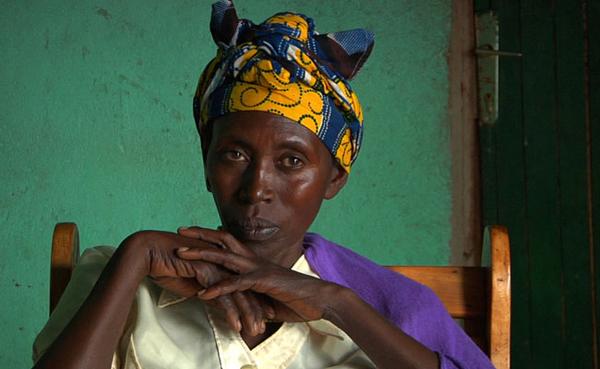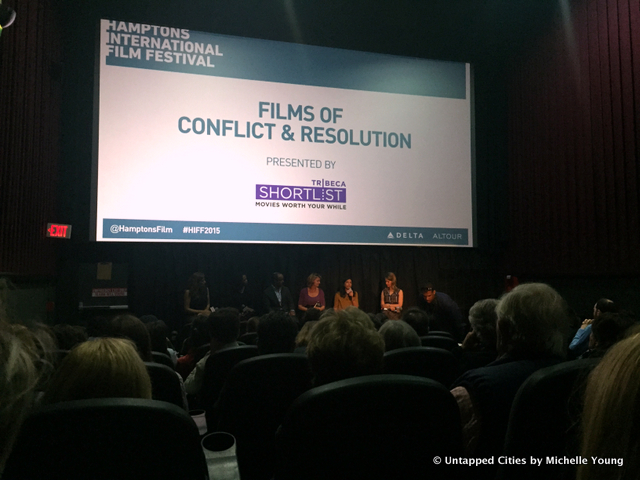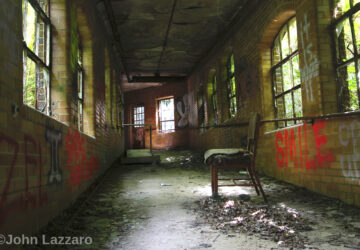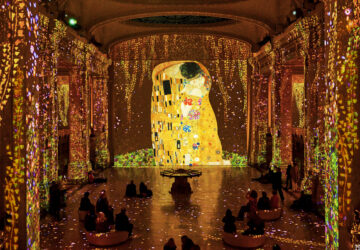Earlier this year, we introduced to you the exciting documentary film company Film at 11, based here in New York City. Their first documentary, “Haiti: Where Did the Money Go?” won the Edward R. Murrow award for News Documentary in 2013. This summer, the team was fundraising to complete the film The Uncondemned, directed by Michele Mitchel and Nick Louvel, a documentary about the first successful prosecution of rape as a war crime. Though the law has been on the books since 1919, after World War I, it was not until after the Rwandan genocide that the first conviction came, the achievement of a few young, plucky and ambitious lawyers working for the International Criminal Tribunal. It is this team, as well as the courageous women who testified in the case, that The Uncondemned follows.
On Friday, we attended the sold-out premiere of the film at the Hamptons International Film Festival, where it won the 2015 Brizzolara Family Foundation Award for a Film on Conflict and Resolution (beating out, among others, the film He Named Me Malala), and was also selected yesterday for the Victor Rabinowitz & Joanne Grant Award for Social Justice. Kim Brizzolara, who presented the award on Friday, told the audience “I have been watching films for this category for fifteen years and the minute I saw The Uncondemned, I knew it was [remarkable].”
 Nick and Michele filming in Rwanda
Nick and Michele filming in Rwanda
It is with heavy heart that I write this article for Untapped Cities, because I personally knew co-director Nick Louvel from when were undergraduates at Harvard. Nick was killed in a car crash a little over two weeks ago, after hand-delivering the completed film to the Hamptons International Film Festival. It is hard to overestimate what Nick’s impact on the film industry could have been. He was fearless in what he wanted to achieve, he inspired us to ask the hard questions, to go for the projects most only dream about, and to do it with humor, wit and generosity of spirit.

As a documentary, The Uncondemned stands among some of the best out there–it has an inspiring story, it has dynamic and fascinating characters, it is rooted in tragedy but emerges triumphant for both Rwandans and those in the international community. But the real achievement, and what sets The Uncondemened apart from other films, is how it is shot and how the narrative is constructed. Nick was the filmmaker and editor on The Uncondemned, and he brought with him his passion for narrative filmmaking. He specifically stated that he wanted this film to feel cinematic, and it does. While the interviews and splices of archival footage move the film forward, it is the stillness captured in the establishing shots that you remember for days after: a church whose benches are filled with clothes and personal effects still bloodied from the genocide over two decades ago or a cot piled with skulls under a sheet flapping in the breeze, all contrasted with the verdant scenery of Rwanda, with its blue green hills and red, clay roads. To complete the narrative, Nicholas Britell, who wrote the soundtrack for 12 Years a Slave, Whiplash and the forthcoming The Big Short, wrote the music for The Uncondemned.
 The Hamptons Internatinoal Film Festival Film of Conflict & Resolution Panel with director Michele Mitchell, Sara Darehshori, Pierre-Richard Propser, Patricia Viseur Sellers and Binaifer Noworojee, all who appeared as subjects in The Uncondemned
The Hamptons Internatinoal Film Festival Film of Conflict & Resolution Panel with director Michele Mitchell, Sara Darehshori, Pierre-Richard Propser, Patricia Viseur Sellers and Binaifer Noworojee, all who appeared as subjects in The Uncondemned
The Uncondemned is groundbreaking for other reasons: it may be the first film about rape in which the physical actions of the crimes are almost never discussed. This was a deliberate decision by the directors, and as Michele mentioned in a panel discussion on Friday, it was so that viewers would not be turned away from shock, but instead focus on the humanity of everyone involved in the story. She says, “We wanted to create a film people wanted to watch” and show that as a community “we can do something, that this issue is solvable.” As Michele explains, their first interview question to the women who testified, instead of what happened to them, was “Why did you testify?” As Kim Brizzolara contends, “This film offers journalists a new way to handle rape and treat survivors with dignity.”
In shooting the subjects, Nick was particular about making sure the women who testified were shot in exactly the same way as the lawyers, but with a burst of color in the background “to celebrate them.” These women are indeed the heart of the story, witnesses until now only known by letters to protect their identity – JJ, OO, NN. They look into the camera and explain that they came out to tell their stories in court, despite all of the cultural norms that prevented others, despite the risks, and despite the personal pain, to testify for people all around the world who have experienced this crime. At one point, JJ looks directly into the camera, her eyes seem to reach out right into you, and you’re right there with her.
On a personal note, it was painful to write this article as much as I wanted to celebrate the artistic and journalistic coup that The Uncondemned is. In looking back on my conversations with Nick (these days you have to search your own mind for memories, as well as digital conversations over email and Facebook chat), I am reminded of how rare of a spirit he was. His sense of adventure and journalistic duty took him to a remote region of the Democratic Republic of the Congo to interview the FDLR militia, leaders of the genocide who had fled Rwanda, with a harrowing return journey but also had him baking a carrot cake because one of the Kickstarter prizes for The Uncondemned was a “Carrot Cake Baked by Nick.” He was also incredibly thoughtful and hilarious at the same time, with a razor sharp brain interested in everything. I feel destined to have known him, and when it turned out he and my husband went to junior high schools within blocks of each other in Paris, and their families lived in the same neighborhood, it seemed too coincidental to ignore.
I can only conclude using Nick’s own words what he hoped to achieve with The Uncondemned:
There is still a misperception that systematic rape in time of war is simply the nature of man, that it is inevitable, and that attempting to curb it is a hopeless endeavor. We are in a battle against cynicism. I hope this film will make a convincing case that these beliefs are in large part unfounded, and they cannot be used as a justification for apathy.
I hope that the stories of these witnesses will connect with other survivors, not just in conflict zones, but also domestically. The women in the film, speaking directly to the audience, are deeply convincing. I hope some viewers will be inspired by them to come out and speak about their rape, and hopefully start a process of healing.
It’s my hope, too, for reasons gendered and otherwise, that presenting rape as a tool of war helps clarify it a human rights issue above all, one that both men and women have to answer to, in the same way we would answer to the uses of chemical weapons, rather than some individualized shame or trauma that must be shouldered alone.
What is it that we leave behind? Though his life was cut tragically short, Nick Louvel’s legacy is clear. The Uncondemned will screen next at the Napa Valley Film Festival, follow the film on Facebook for the latest screenings and learn more about Film at 11 on its website.





